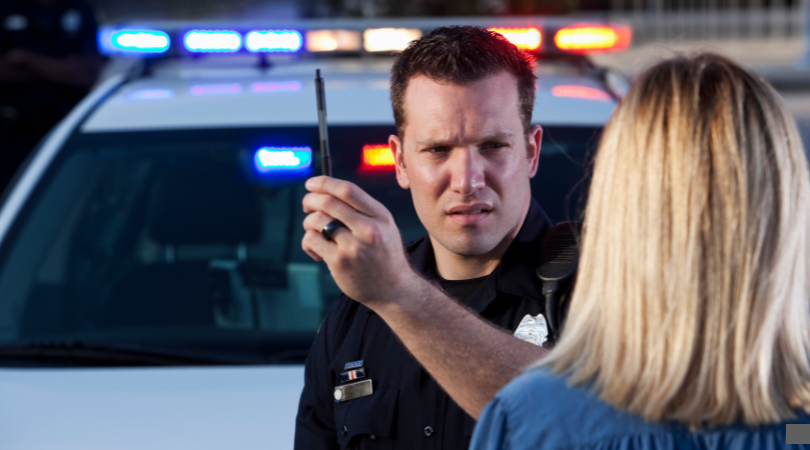Why You Should Never Take a Field Sobriety Test in Arizona

If you were pulled over for a suspected DUI in Arizona, there’s one critical decision that could significantly impact your case: whether or not to perform field sobriety tests. While law enforcement may present these tests as routine or even mandatory, here at Grand Canyon Law Group, we want you to know that you have the right to say no.
Let’s break down the truth about field sobriety tests, the science (or lack thereof) behind them, and what you need to know to protect yourself from a conviction that could change your life.
What Are Field Sobriety Tests?
Field sobriety tests (FSTs) are a series of physical and cognitive exercises used by police officers during a DUI investigation to determine if a driver is impaired. The three standardized field sobriety tests used across Arizona and the U.S. are:
- Walk-and-Turn Test: The driver takes nine heel-to-toe steps in a straight line, turns on one foot, and takes nine steps back.
- One-Leg Stand Test: The driver is asked to stand on one leg for 30 seconds while counting out loud.
- Horizontal Gaze Nystagmus (HGN) Test: The officer uses a pen or finger to track your eye movement while looking for involuntary jerking.
These tests are part of the National Highway Traffic Safety Administration’s (NHTSA) Standardized Field Sobriety Test (SFST) battery and are designed to help officers form probable cause for a DUI arrest.
The Shocking Truth: These Tests Are NOT Reliable
Here’s what many people don’t realize: you can fail a field sobriety test even when you’re 100% sober. Why? Because these tests are highly subjective, often administered under stressful and unpredictable conditions, and judged solely by the arresting officer.
Research has shown that even under ideal circumstances, field sobriety tests are flawed. For example:
- The Walk-and-Turn Test has a 68% accuracy rate.
- The One-Leg Stand Test has a 65% accuracy rate.
- The HGN Test is considered the most accurate but still relies on subjective observation.
Source: NHTSA SFST Validation Studies
When you’re scared, pulled over at night on a slanted roadside, with flashing lights in your face and cars speeding by—good luck balancing on one leg.
Why You Should Politely Decline Field Sobriety Tests
You are not legally required to perform field sobriety tests in Arizona.
Officers may not tell you that you have a choice. In fact, they may use subtle pressure or phrases like, “Let’s just make sure you’re okay to drive.” But field sobriety tests are voluntary, and you cannot be penalized for refusing to take them.
Here’s why you should say no:
- They are designed to fail. Officers are trained to look for “clues” of intoxication, not to clear your name.
- Your performance will be used against you. Even if you blow a 0.00 on a breathalyzer later, your poor balance or nervous stumbles may still support a DUI charge.
- You have nothing to gain. There is no scenario where these tests help you. At best, they confirm what you already know. At worst, they give prosecutors ammunition against you.
What to Say Instead
If an officer asks you to step out and perform a field sobriety test, stay calm and be respectful. You can say:
“Officer, I respectfully decline to participate in any field sobriety tests.”
And leave it at that.
What Happens If You Refuse?
Refusing to perform field sobriety tests is not the same as refusing a chemical test (like a breath, blood, or urine test). Arizona’s Implied Consent Law requires you to submit to a chemical test if you’re lawfully arrested for DUI. Refusing a chemical test can result in a license suspension.
But refusing field sobriety tests? That is perfectly legal.
Just know: the officer may still arrest you. But without the field sobriety test evidence, your defense is much stronger. This is where an experienced DUI defense attorney can really make a difference.
How Grand Canyon Law Group Can Help
At Grand Canyon Law Group, we help good people accused of a crime take control of their case and protect their future. Many of our attorneys are former prosecutors. We’ve handled countless DUI cases throughout Maricopa County, Pinal County, and across Arizona. We know how to challenge faulty police procedures and poke holes in the state’s case.
When it comes to DUI defense, details matter:
- Was the stop lawful?
- Did the officer follow proper procedure?
- Are there inconsistencies in the police report?
- Were your rights violated?
We investigate everything. And we fight hard—not just for reduced charges or dismissed cases, but for your freedom, your career, and your future.
Key Takeaways
- You are not legally required to perform field sobriety tests in Arizona.
- These tests are flawed and highly subjective.
- Refusing them preserves your defense.
- You should never go through a DUI charge alone. You deserve a defense that fights for your future.
Call Grand Canyon Law Group Today
If you’ve been arrested for DUI or are under investigation, don’t wait. Every minute matters. Let our experienced team give you the advantage you need.
Call (480) 573-6441 or contact us online for a free, confidential consultation.
We’re here to help you reclaim your power and move forward with confidence
